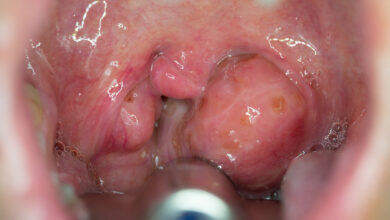MY EARS ARE RINGING AND I HATE IT!

If you learn anything from this blog, it would be the correct pronunciation of Tinnitus. Tinnitus is pronounced “tin-a-tus” not “tin-eye-tis.” The word is mis-pronounced all the time, so, if I’m successful at anything, it’s how you pronounce the subject of this article. The emphasis is on the first syllable, not the second: TIN-a-tis, not tin-EYE-tis!
Now that we’ve established that fact, we can begin. Tinnitus is defined as “the sensation of hearing a sound in one or both ears in the absence of an internal or external source.” It is an abnormal auditory sensation. It can be a humming, buzzing, roaring, hissing, or clicking, and is described as sounding like locusts, crickets, or machinery. It can affect your hearing and be so loud as to disrupt concentration. Statistics say that 10-15% of people have it, but I think it’s probably more prevalent than that. In most cases, tinnitus is not related to a serious underlying illness and merely represents a deterioration of the auditory nerve; what is called Sensorineural Hearing Loss (SNHL), or the natural deterioration of the hearing (auditory) nerve over time. However, Tinnitus is not always accompanied by hearing loss.
Tinnitus falls into two categories based on cause:
Primary — the cause is unknown (idiopathic). Most cases are related to SNHL.
Secondary — it has an identifiable cause. Most often medications or other diseases.
Primary Tinnitus is by far the more common category because as people age, the auditory nerve undergoes degeneration that results in hearing difficulties. Loud noise exposure, medications, infections, and metabolic disorders, such as diabetes, are common offenders, as well. Aging is obvious because it causes just about everything from gray hair to numb feet. As we age, the small hairs in the cochlea (inner ear) deteriorate and decreased hearing and tinnitus result. Loud noise exposure such as rock concerts, explosions, gunfire, or machinery are sources of tinnitus, and multiple drugs like certain antibiotics, diuretics, chemotherapy agents, quinine, and aspirin are frequent causes as well.
This spring and summer, parts of the country have been overrun by the latest reappearance of cicadas. Their buzzing, or however you would describe it, is the type of sound many tinnitus sufferers experience. That constant droning, buzzing sound that drives you crazy and never seems to let up.
Other less frequent causes of tinnitus are earwax plugs, Meniere’s disease, otosclerosis, TMJ (Temporal Mandibular Joint) Syndrome, head and neck injuries or tumors, and acoustic neuroma, (see below). Vascular disorders such as arteriosclerosis, hypertension, turbulent blood flow in the head and neck, and A-V malformations are causes, too.
Meniere’s disease, also called endolymphatic hydrops, is a disorder in which the fluid in the semi-circular canals of the inner ear accumulates in excess amounts and causes increased pressure within the canals. This causes dizziness, hearing loss and tinnitus. It’s a very bothersome condition.
Otosclerosis is a hereditary stiffening of the bones of the middle ear (hammer, anvil, stirrup-malleus, incus, stapes) which causes hearing loss and tinnitus. The stiffened bones dampen the transmission of sound waves, and the patient’s hearing is affected.
TMJ is an abnormality of the joint(s) connecting the jaw to the skull. The joint becomes inflamed or arthritic resulting in pain. The location of the TMJ just in front of the ear, tends to cause tinnitus.
Acoustic neuroma is a benign tumor of the 8th cranial nerve, the auditory (vestibular) nerve. This nerve controls balance and hearing. When a tumor (neuroma) develops in the nerve, hearing loss and tinnitus occur in the ear on the side where the tumor is located.
Arteriosclerosis, or hardening of the arteries, causes pulsatile tinnitus which occurs when calcified plaques develop in the arteries near the inner ear. Plaques cause turbulence as blood flows over them causing tinnitus that pulses with each heartbeat. So one hears a pulsing swoosh or rushing sound.
Arteriovenous malformations (AVM’s) are abnormal connections between arteries and veins. When they occur near the ear they cause tinnitus when blood flows through the connection. This would also cause tinnitus in just one ear.
In diagnosing tinnitus and determining the cause, a patient’s history is very important. Questions to ask are:
How long have you had tinnitus?
Is it in one ear or both?
Is your hearing affected by tinnitus?
Does it impact your life? Bothersome? Not bothersome?
Does it affect your sleep, mood, or thinking?
The first, and most important, test needed is a complete audiologic examination, ie. a hearing test. This helps to identify the presence and severity of hearing loss and leads to finding the cause. If tinnitus is one-sided, pulsatile, or associated with neurologic findings, a CT or MRI of the head are needed, too. Not everyone needs a CT, but those with those “red flag” symptoms definitely do. If the person has classic sensorineural hearing loss on audiogram, then tinnitus is most likely primary.
The best treatment for tinnitus is prevention. Prompt treatment of ear infections, avoidance of loud noises, correction of causative conditions, and discontinuation of offending drugs are important measures. Once tinnitus has developed there is no cure, but it can be moderated somewhat. However, once present, it is never completely eliminated. What follows are recommended techniques for improving tinnitus:
Tinnitus Masker-a device when worn provides low level background music, or “white noise,”
which dampens the tinnitus sound.
Hearing aids-will sometimes reduce tinnitus
Tinnitus Retraining Therapy (TRT)-retraining the auditory system to accept the abnormal
sound. This technique is 80% effective.
Healthy Lifestyle-good, clean living helps just about anything.
Unfortunately, there is no cure for tinnitus, and patients who have it simply have to get used to it, unless a treatment modality used is effective. The severity of tinnitus fluctuates from minute to minute and can be very annoying. It can often lead to insomnia, anxiety, fatigue, and depression.
Dr. G’s Opinion: I have tinnitus quite badly. It’s occurring right now as I write this blog. My tinnitus sounds like cicada’s continually making their hissing sound. I hear it almost all the time. The cause is probably multi-factorial. I haven’t had any loud noise exposure, but I do take fourteen medications. Being many years over the age of 65 and having documented SNHL are probably the causes. I haven’t sought treatment for it, but I did have a hearing test (audiogram) that showed presbycusis, or high frequency hearing loss, (a type of SNHL) due to aging. I was not a candidate for hearing aids. Tinnitus bothers me a lot, but it has not affected my life, negatively. There are rare times when I don’t notice it, but it certainly is still there. If you have tinnitus you should see your doctor, or an ear specialist (otolaryngologist), and have it evaluated to look for a correctable cause. I hope you’re that lucky.
References: mayoclinic.org/tinnitus
MedLineplus.org/tinnitus
Dalrymple SN, Lewis SH, Philman P. Tinnitus: Diagnosis and Management Am Fam Phys 2021 June 1;103(11):663-670.




